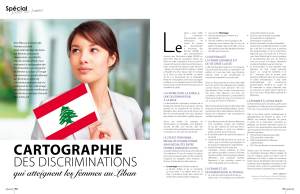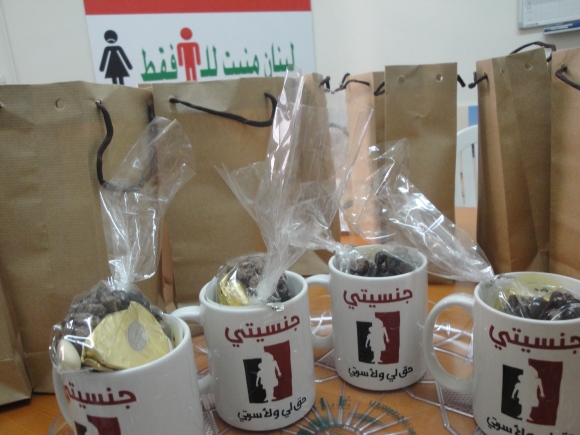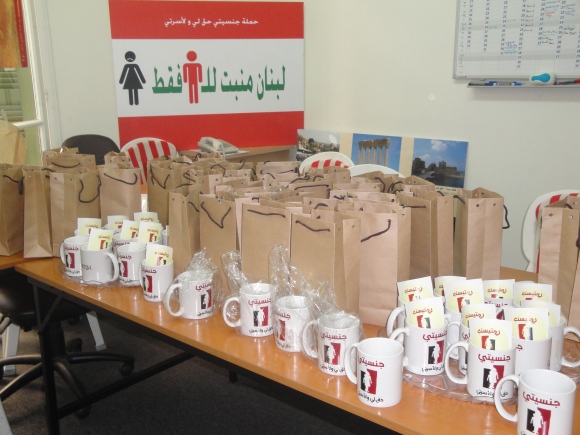Yesterday the Pakisani Embassy in Lebanon, invited us to view the great movie by Shoaib Mansoor , “In the Name of God”.
I went to UNESCO with my dad, my bf, my friend abdo and my gr8t colleague from the ” NGO Community ” Chanty.
In the name of God is an Urdu/english Film featuring Culture diversity and the damages done by extremists in the Name of Religion as well as the beauty of Music that assemble people from different background and religion and culture;
the action of the movie takes place between, London, the US, Lahore in Pakistan and a small village at the border between Afghanistan and Pakistan.
The movie finishes with a great letter written by one of the preeminent characters “Mansoor ” a Pakistani musician, who went to the USA to study music, and who married an American girl “Janie”. After 9/11 attacks, Mansoor is jailed without trial and tortured for his Islamic Backgrounds.
Even under Torture, he couldn’t hate all americans for what happened to him, he knew that he will not get away from his torturer, but he wrote to his wife a great and moving letter in which he emphasises the importance of love and tolerance;
as for women’s rights, the movie features the struggle of “Mary” or Maryam, a british with Pakistani background girl, who after falling in love with a British guy, was forced to get married in Afghanistan to her “muslim ” cousin by her dad.
after she escapes with the help of her father in law, the british and pakistanian governments help, she go to trial to Punish her husband, and her dad.
in the trial, the movie shows 2 sheikhs that have different views from Islam are opposed, and one great Sheikh explains and proves so bluntly the role and importance given to women in Islam, the same thing is given to Music, with Prophet David having a great voice, and music heritage.
I luved the Movie, it explains how intolerance , war and hatred can be done in the name of a religion that is in fact built on Peace, and understanding.
the music of the film is so beautiful too…. I think we call it “soundtrack’, it takes you away from the ugliness of the world, away from the racism that might exist, away from the ignorance of others religion and cultures , to a world were civilisations, and cultural differences become a plus!
Rita Chemaly
I found an article on Wikipedia about the plot of the movie, and the trailer on You tube, again I recommend this Great Movie to all those who understand and fight for Human Rights, Tolerance, Love and Peace….
RITA

“Three different people from different continents have problems that relate to South Asian culture and the subsequent misinterpretations of Islam in Pakistan’s society.
Two brothers who are singers, Mansoor (Shaan) and Sarmad (Fawad), become two of the best singers in Lahore. Sarmad becomes influenced by an Islamic activist. He begins to practice the extremist interpretation of Islam, grows a beard and goes against music, putting pressure on his free-spirited family to comply. Those parties interpret certain verses of the Quran and Hadith (Islamic religious texts) to call for a ban on music and pictures.
In England, Mary/Mariam (played by actor-model Iman Ali) is a westernized British Pakistani girl in love with a British boy named Dave. Her hypocritical father disapproves, despite the fact that he is living with a British woman to whom he is not married. He tells Mary that they are going to Pakistan for a trip and that once they return she can marry Dave. This, however, is a trap. While touring FATA, he has her forcibly married to Sarmad, who is her cousin. Mary is then abandoned in FATA at her new household.
Meanwhile, Mansoor goes to a music school in Chicago. There, he meets a girl called Janie and instantly falls in love with her. She quits alcohol for him, and they eventually get married. After 9/11, FBI officers capture him when someone overhears a drunk man accusing Mansoor of being a terrorist. Subsequently, he is tortured for a year in custody just because of his Islamic background.
Mary manages to run away but is caught by Sarmad in the process. She is kept under strict supervision and, due to this incident, Sarmad eventually consummates their marriage by force. She doesn’t lose hope, managing to sneak a letter to Dave under the guise of writing to her father. Mansoor and Sarmad’s parents finally come to her rescue under the protection of the British government, but Mary, driven by vengeance, then takes her father and cousin to court in Pakistan. There, a Maulana (Naseeruddin Shah) explains to the court how Islam is being butchered in the name of war and hatred, bringing the religion forward in a believable and peaceful manner.
Traumatized by all the suffering he has seen and caused, Sarmad withdraws from the case. He also realizes the damage that he was made to do in the name of religion. Mary is now free and returns to the village where she was kept prisoner so she can educate the girls there. Meanwhile, Mansoor is still in U.S. custody after a year of torment; the last torture session having inflicted permanent brain damage. After a failed rehab attempt, he is deported and reunited with his family in Pakistan where, thanks to the hope of his family, he begins to slowly recover.” source: http://en.wikipedia.org/wiki/Khuda_Kay_Liye
Read Full Post »







 Les enquêteurs estiment également que le chef des services des renseignements des FSI, en contact avec de nombreux politiques, était sans doute sur écoute! Et que ses moindres faits et gestes étaient observés. Ainsi les organisateurs de l’attentat ont pu savoir ou et comment agir, quand il est arrivé d’Europe, quand il a quitté l’Europe pour revenir au Liban sans prévenir personne. Aucun convoi de sécurité ne l’attendait à l’aéroport. Il avait ses raisons, relevant plutôt de la sphère personnelle. Mais toute arrivée sensible à Beyrouth ne passe jamais inaperçue. « . Quand on atterrit à Beyrouth, ça se sait toujours… Il y a donc eu aussi sans doute tout au long d’un parcours presque balisé par les tueurs des hommes chargés d’une surveillance visuelle. Du premier signalant le départ de la cible jusqu’au dernier actionnant le détonateur après avoir été prévenu par une « vigie », ayant une vue dégagée sur la voiture de Wissam el-Hassan, s’engageant dans la rue de l’attentat » selon une source très proche de l’enquête.
Les enquêteurs estiment également que le chef des services des renseignements des FSI, en contact avec de nombreux politiques, était sans doute sur écoute! Et que ses moindres faits et gestes étaient observés. Ainsi les organisateurs de l’attentat ont pu savoir ou et comment agir, quand il est arrivé d’Europe, quand il a quitté l’Europe pour revenir au Liban sans prévenir personne. Aucun convoi de sécurité ne l’attendait à l’aéroport. Il avait ses raisons, relevant plutôt de la sphère personnelle. Mais toute arrivée sensible à Beyrouth ne passe jamais inaperçue. « . Quand on atterrit à Beyrouth, ça se sait toujours… Il y a donc eu aussi sans doute tout au long d’un parcours presque balisé par les tueurs des hommes chargés d’une surveillance visuelle. Du premier signalant le départ de la cible jusqu’au dernier actionnant le détonateur après avoir été prévenu par une « vigie », ayant une vue dégagée sur la voiture de Wissam el-Hassan, s’engageant dans la rue de l’attentat » selon une source très proche de l’enquête.





















